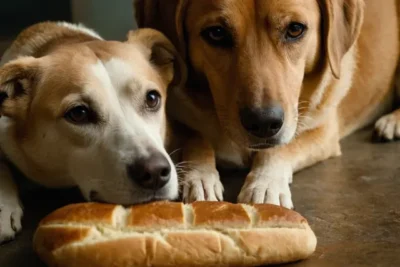

Feeding dogs raw bones can pose a significant choking hazard. Raw bones can splinter and break into small pieces, which can easily get lodged in a dog's throat or digestive tract. This can lead to choking or even more serious complications such as blockages or perforations in the intestines.
Can dogs eat raw bones? While some dogs may be able to handle raw bones without any issues, it is important to be cautious and closely monitor your dog while they are chewing on bones. If you notice any signs of choking or difficulty breathing, it is crucial to seek immediate veterinary attention.
Another risk of feeding dogs raw bones is dental damage. While chewing on bones can help clean a dog's teeth and remove plaque, it can also lead to dental fractures or broken teeth. This is especially true if the bones are too hard or if the dog chews on them aggressively.
Can dogs eat raw bones? It is important to choose the right type of bones for your dog and ensure they are appropriate for their size and chewing habits. Avoid giving your dog bones that are too hard or small, as they can cause dental damage.
Feeding dogs raw bones can also increase the risk of gastrointestinal blockage. If a dog swallows a large piece of bone or if bone fragments get stuck in their digestive tract, it can lead to a blockage. This can cause severe pain, vomiting, diarrhea, and in some cases, it may require surgical intervention to remove the blockage.
Can dogs eat raw bones? It is important to supervise your dog while they are chewing on bones and to discard any small or sharp bone fragments that could be swallowed. If your dog shows any signs of gastrointestinal distress after consuming a bone, it is important to contact your veterinarian immediately.
Raw bones can also carry bacteria such as Salmonella or E. coli, which can pose a risk to both dogs and humans. These bacteria can cause food poisoning and lead to symptoms such as vomiting, diarrhea, and fever.
Can dogs eat raw bones? It is important to handle raw bones with caution and practice good hygiene when feeding them to your dog. Wash your hands thoroughly after handling raw bones and ensure that any surfaces or utensils that come into contact with the bones are properly cleaned and sanitized.
Feeding dogs raw bones as a regular part of their diet can lead to nutritional imbalances. While bones can provide certain nutrients such as calcium and phosphorus, they should not be the sole source of nutrition for dogs. Dogs require a balanced diet that includes a variety of proteins, carbohydrates, fats, vitamins, and minerals.
Can dogs eat raw bones? It is important to consult with a veterinarian or a canine nutritionist to ensure that your dog's diet is well-balanced and meets their nutritional needs. Raw bones should be considered as an occasional treat rather than a staple food.
If you choose to feed your dog raw bones, there are several precautions you can take to minimize the risks:
Can dogs eat raw bones? While some dogs may enjoy chewing on raw bones and can do so without any issues, it is important to be aware of the potential risks and take necessary precautions. If you have any concerns or questions about feeding your dog raw bones, it is always best to consult with a veterinarian.
Related posts